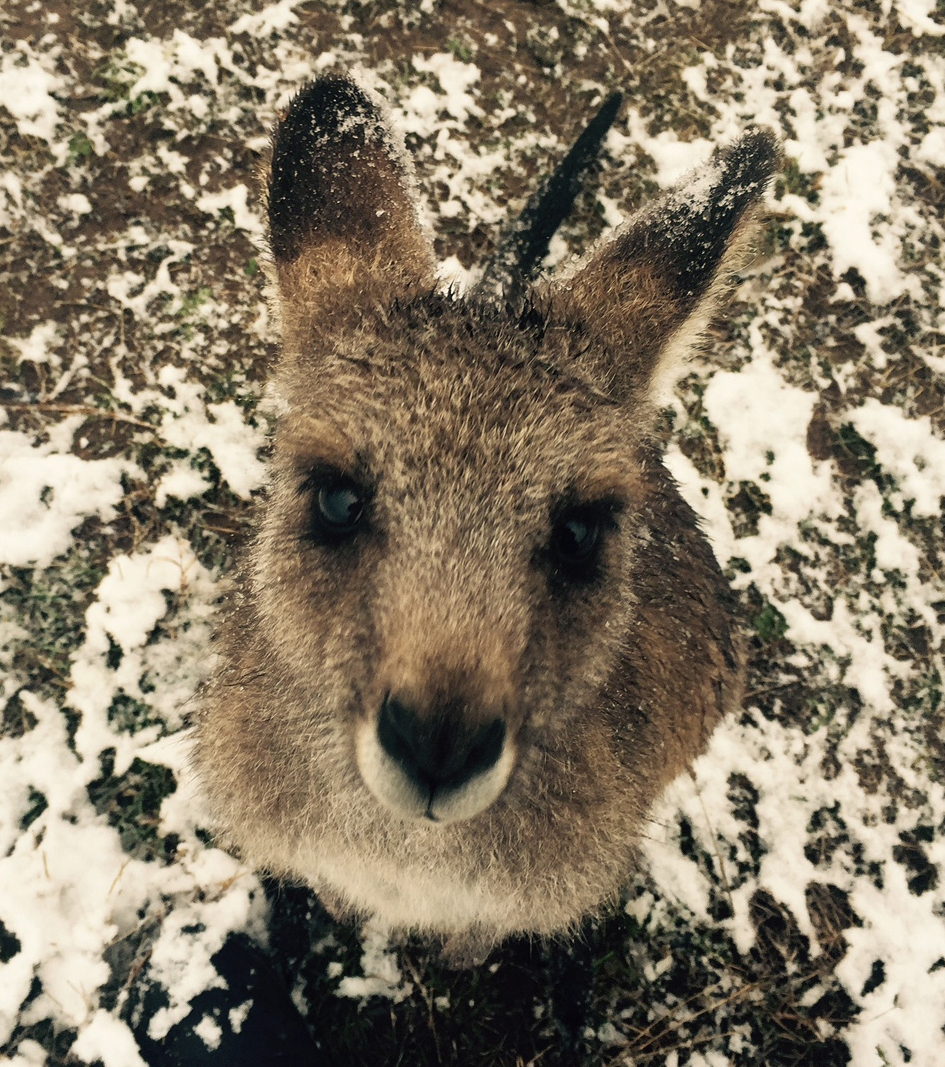
Polar Blast may impact vulnerable animals
Thursday, June 10, 2021
With the 'Polar Blast' hitting much of eastern Australia this week we would like to share some information on how this sort of weather can impact wildlife and how you can help.
Although most of our native animals are well adapted to normal changes in weather conditions, extended periods of wet weather and snow can still cause hypothermia. Animals can cope with extremes in temperatures they are used to, but if these extremes are unusual for a particular area the animals there may struggle.
Animals with existing health issues, that are very young or old, will find it harder to cope with the cold. Please keep an eye out for animals exposed to the elements.
Very young, injured or sick animals can succumb to hypothermia quickly if left unprotected so if you think that an animal is in distress, please act quickly by calling WIRES 1300 094 737.
Did you know that most vehicle collisions with animals during the winter months?
Please always drive to the conditions and speed limits. Be alert for animals crossing roads especially near water sources like creeks or gully's where thick fog may occur. Motorists are sharing the road with wildlife during their most active times, dawn and dusk.
If you are involved or witness a collision with a native animal and it is safe to do so, please stop, remove the animal from the road and check pouches and surrounding area for any young animals.
Always check pouches where it is safe to do so as any young animals will not survive long in the cold conditions. Keep any distressed animals warm (ideally wrapped in a natural, breathable material like wool) until you can get help.
Please do not place the animal inside your clothing as it can induce stress and harm the animals chances of survival. Warm, dark and quiet means: around a constant 25 degrees, in a cage or box, lined and covered in a blanket or towel and away from human contact, noise and pets. Handle only as needed to rescue and contain safely. Do not attempt to feed.
If for any reason you cannot reach our rescue line 1300 094 737 or if the animal is orphaned or clearly injured or you are unsure of what to do, take the animal immediately to the closest vet. They will be able to provide any emergency treatment and will make contact with us to arrange ongoing care and/or release.
Recent Posts
WIRES launches its first wildlife rehabilitation centre - Mullyang
WIRES Emergency Response in the wake of ex-tropical cyclone Alfred
International Women’s Day Volunteer Spotlight: Shelley
Tropical Cyclone Alfred – Emergency Wildlife Advice
Interview with WIRES Training and Development
Celebrating Women in Science: The Journey of Holly, Wildlife Conservationist and WIRES Team Member
